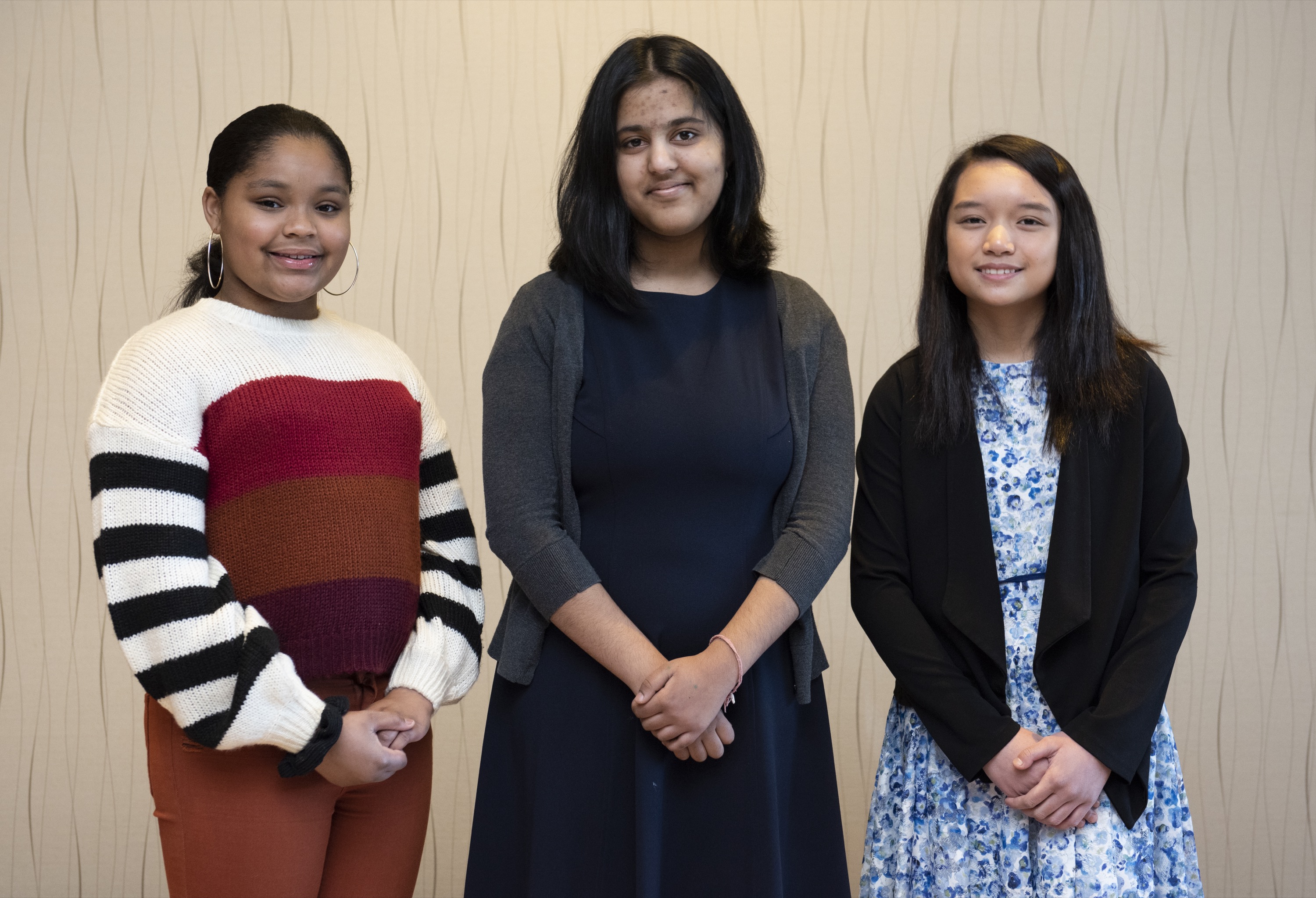The three winners from local middle schools were recognized at a lunch in the university's Moseley Center on Friday, Jan. 17
Elon honored three middle school students on Friday as the winners of the MLK Humanitarian Essay Contest.
The annual contest sponsored by The Center for Race, Ethnicity & Diversity Education at Elon, promotes the vision of the late civil rights leader for a more humane society by asking local students to use the written word to demonstrate the value of the contributions of one person.
This year’s theme is the “American Dream”, inspired by King’s essay, “The American Dream.” King delivered the essay at Drew University in 1964 in which he spoke about racism, segregation, discrimination and violence as the main barriers in achieving the American Dream.
This year’s winners are:
Azharee Lawson
Burlington Christian Academy, Sixth Grade
In her essay, Azharee imagined what a world without racism would look like and focused on what it means to attain the American dream.
“I think the American dream is important to us because it allows others to improve themselves. For example, the American dream allows us to not be limited with set boundaries,” Azharee wrote in her essay. “The American dream is something we have strived for years yet we’re not there yet. Martin Luther King, Rosa Parks, Harriet Tubman, Malcolm X and many more leaders have worked hard to bring greater equality to America regardless of race.”
Keesha Go
Ferndale Middle School, Seventh Grade
Keesha’s essay focused on the progress and peace that could be achieved if racism were eliminated. This is the second year Keesha has been honored — she won the sixth grade essay contest in 2019.
“More respect could be shown towards someone’s work and achievements by recognizing their talent and hard work rather than being blinded by prejudice or attributing it to their race and not their efforts,” she wrote. “People could keep on reaching their goals, continuing their education, freely interacting socially or whatever they want to do without facing unnecessary challenges and discouragement.”
Dishita Agarwal
The Academy at Lincoln, Eighth Grade
Dishita drew on the struggles she and her parents have faced as Indian Americans and wrote about the value of different views.
“Without racism, the world would be a place where we put humanity first. Our personalities would be acknowledged before the amount of melanin we have,” she wrote. “Our skin color would not define if we were dangerous. It would instead represent many different perspectives of the world, with each one bringing a unique contribution to the world.”



